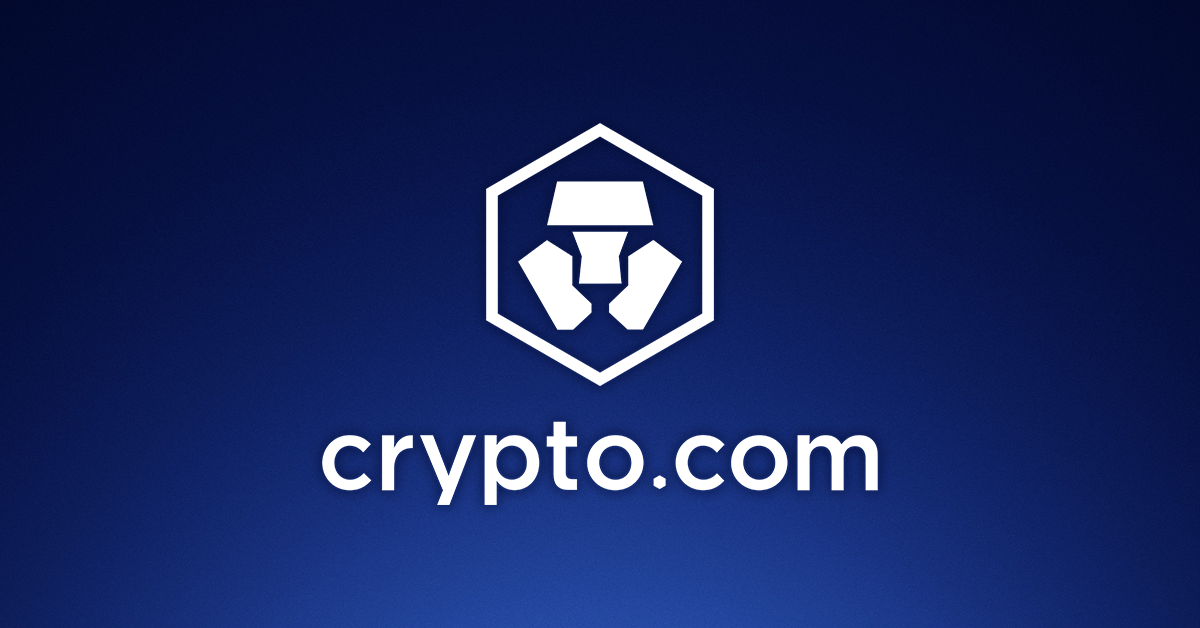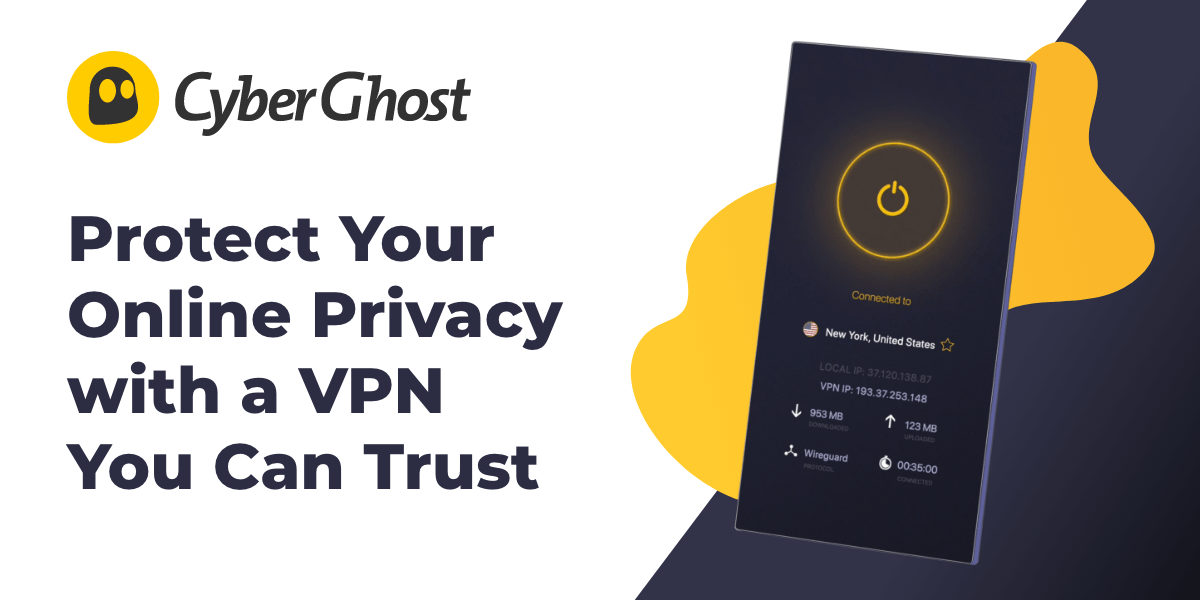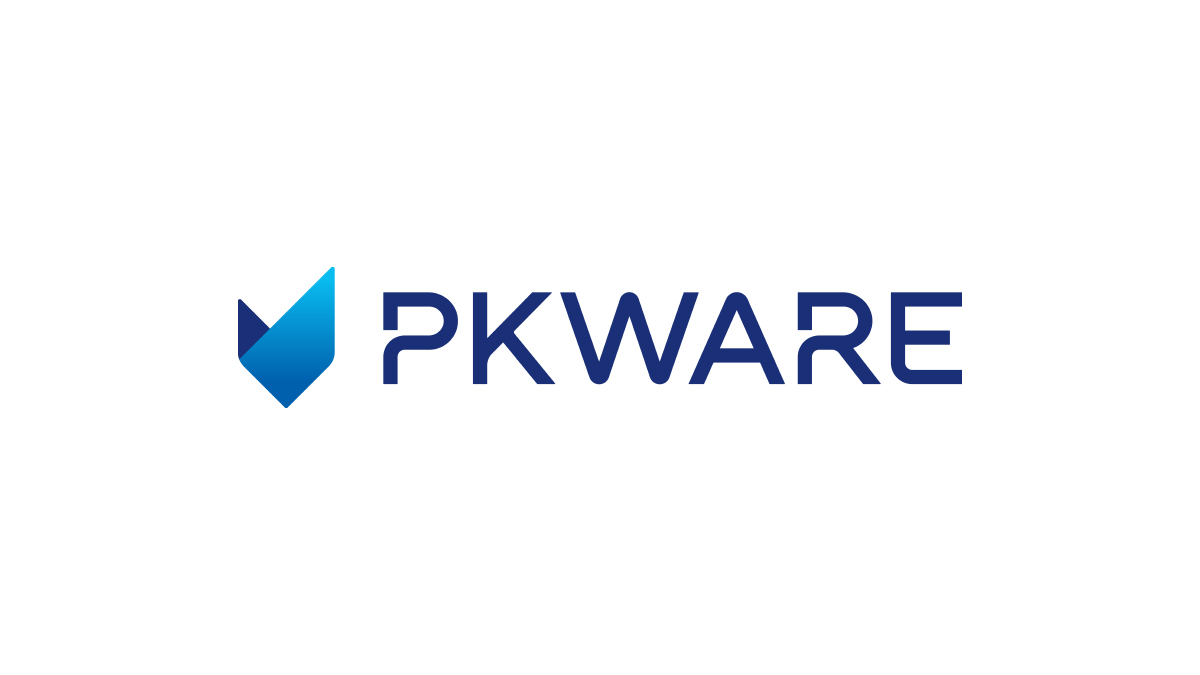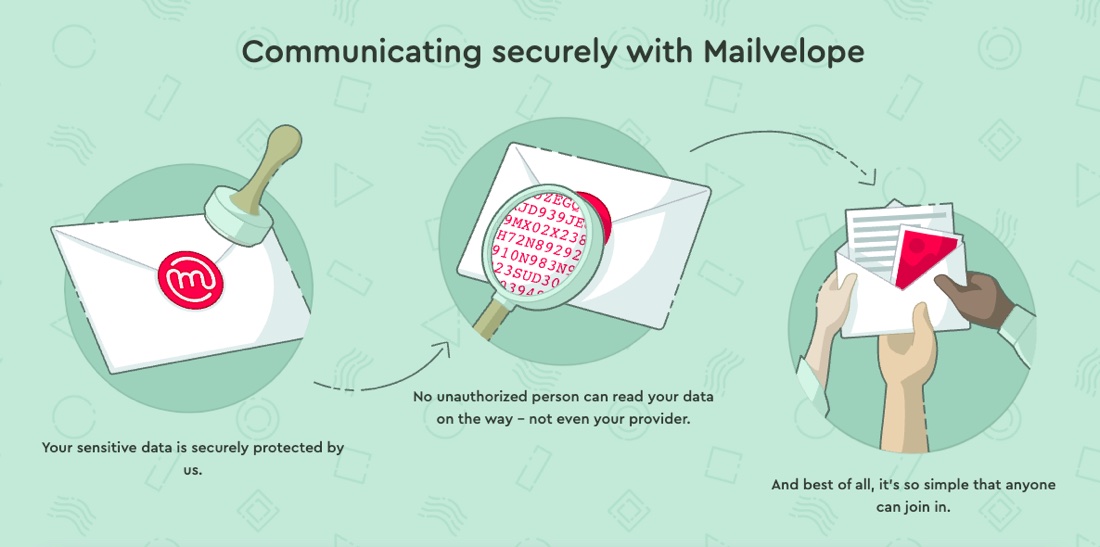Introduction
With the ever-increasing threats to data privacy and security, encrypting emails has become an important practice for both individuals and businesses. However, with dozens of email encryption software on the market, choosing the right one can be an overwhelming task. This guide reviews and compares 15 of the top email encryption platforms based on key criteria to help you make an informed decision.
Methods of Evaluation
We evaluated each software based on features, ease of use, reputation, pricing, and other factors. In addition to traditional evaluation criteria, we also considered more modern metrics like the number of backlinks, typical monthly search traffic for the keyword phrases, and keyword trends over the past year to gauge true market popularity and demand. This holistic evaluation approach aims to identify the most feature-rich and trusted solutions with an eye on long-term viability.
1. Symantec Encryption Desktop
Symantec Encryption Desktop, formerly PGP Desktop, is an email and file encryption software developed by Symantec. Symantec is a well-established security company that has been in the industry for over 30 years, providing antivirus, encryption, firewall and other cybersecurity solutions for both consumers and enterprises.
Pros: The main advantages of Symantec Encryption Desktop include:
– Easy-to-use client program that seamlessly integrates with email
– Strong reputation and track record of security among enterprises
– Provides both email and file encryption in one solution
– Complies with regulations like HIPAA and GDPR
– Robust key management and recovery features
Cons: One potential disadvantage is that the software can be complex to configure for larger teams and enterprises. Additional training and support may be required for deployment.
Pricing: Pricing for Symantec Encryption Desktop depends on the number of users required. It has various license options starting from $35 per year for an individual/home user up to customized enterprise plans for large organizations.
Some key stats about Symantec Encryption Desktop include:
– Over 20 million downloads worldwide
– Used by many large enterprises and government agencies
– Integrates with all major email clients like Outlook and Thunderbird
2. Sophos Email Protection
Sophos Email Protection is a cloud-based email protection service from Sophos that helps protects businesses from email threats. It provides effective anti-spam, anti-phishing and anti-malware protection while ensuring smooth email workflows.
Pros: Some key advantages of Sophos Email Protection include:
– Intuitive cloud-based protection platform
– Effective anti-spam, phishing and malware filtering
– Integration with Sophos Central management
– Automated policy templates for easy setup and use
– Continuous AI/ML updates to catch new threats
Cons: One potential disadvantage is that as a cloud-based service, Sophos Email Protection requires an internet connection to function properly. There is no on-premise deployment option.
Pricing: Sophos Email Protection pricing starts from $2 per user per month for the Essential plan up to $4 per user per month for the Advanced plan. Volume discounts are also available. A free 30-day trial is available.
Some key stats about Sophos Email Protection include:
– protects over 100,000 organizations worldwide
– filters over 100 billion emails per month
– achieves an average spam catch rate of 99.9%
3. McAfee Email Encryption
McAfee Email Encryption is email encryption software from cybersecurity leader McAfee. It provides an easy to deploy email encryption appliance that works to protect sensitive email communications.
Pros: Key advantages of McAfee Email Encryption include:
– Easy to deploy encryption appliance that requires minimal setup and maintenance.
– Comprehensive policy controls to enforce encryption rules across the organization.
– Detailed auditing and reporting on all encrypted emails for compliance purposes.
Cons: A potential disadvantage is that as an appliance-based solution, it requires additional hardware to be purchased and maintained compared to a pure software-based encryption product.
Pricing: McAfee Email Encryption pricing starts at $5 per user per month for the basic version with additional customizable plans available based on organization size and needs. Contact McAfee sales for an exact quote.
Some key stats and facts about McAfee Email Encryption include:
– Protects email for all major platforms like Outlook, Gmail, etc.
– Supports email encryption policies, auditing and comprehensive reporting.
– Over 30 years of experience providing enterprise-grade security solutions.
4. BlackBerry Protect Email Encryption
BlackBerry Protect Email Encryption is an email encryption software developed by BlackBerry that allows users to easily encrypt emails sent from popular email clients like Gmail and Outlook. BlackBerry Protect uses strong AES 256-bit encryption to protect confidential emails end-to-end.
Pros: Key advantages of BlackBerry Protect Email Encryption include:
– Simple encryption for Gmail, Outlook and other major email clients
– Mobile app allows easy access to encrypted emails on the go
– Strong reputation for security and privacy due to BlackBerry’s expertise in cybersecurity
Cons: One potential disadvantage is that the free version only allows encryption of 10 emails per month. For higher volume usage, an upgrade to a paid plan is required.
Pricing: Pricing starts at $5 per user/month for the ‘Personal’ plan (50 emails per month) and goes up to $15 per user/month for the ‘Business’ plan (unlimited emails).
Some key stats about BlackBerry Protect Email Encryption include:
– Used by over 100,000 organizations worldwide
– Supports major email clients like Gmail, Outlook and others
– Mobile apps available for iOS and Android devices
5. Crypto AG Secure Messaging
Crypto AG Secure Messaging is an email encryption software developed by Crypto AG, a Swiss company that provides encryption products and services. Founded in 1952, Crypto AG is one of the longest established companies in the cybersecurity industry with over 50 years of experience in encryption.
Pros: The main advantages of Crypto AG Secure Messaging include:
– Trusted leader in encryption with a proven 50+ year track record
– Provides compliant encryption of emails and file attachments to meet regulatory requirements
– Future-proof encryption that is resilient against emerging threats like quantum computing
Cons: One potential disadvantage is that the software can be complex to configure and manage for less technical users or smaller organizations without an dedicated IT team.
Pricing: Crypto AG Secure Messaging is available through annual subscription plans starting from $25 per user per month for the basic plan.
Some key stats about Crypto AG Secure Messaging include:
– Encrypts email communications and file attachments end-to-end
– Complies with data privacy regulations such as HIPAA, GDPR, CCPA
– Encryption is quantum-safe and resilient against emerging threats from quantum computing
– Over 5000 organizations worldwide trust Crypto AG for their encryption needs
6. SendGrid
SendGrid is a leading email delivery, API, and marketing service with more than 700,000 customers. Founded in 2009, SendGrid has helped thousands of companies grow their business with effective and scalable email services.
Pros: Some key advantages of SendGrid include its email encryption API and tools, easy integration with popular apps like Shopify and Slack, powerful email marketing automation capabilities, and strong email deliverability rates.
Cons: The free plan has limitations on the number of emails that can be sent each month. Paid plans can be expensive for high-volume email sending needs.
Pricing: SendGrid offers a free plan with limited use as well as paid plans starting at $49/month for 25,000 emails and scaling up from there based on usage. Custom enterprise plans are also available.
SendGrid processes more than 30 billion emails each month. They have a 99.9975% deliverability rate and integrate with over 350 applications like Shopify, Slack, and Zendesk.
Email Delivery, API, Marketing Service | SendGridsendgrid.com
7. Barracuda Sentinel
Barracuda Sentinel is an email encryption software solution developed by Barracuda Networks. As the worldwide leader in email protection and security solutions, Barracuda brings over 25 years of experience securing enterprise email to Sentinel.
Pros: Some key advantages of Barracuda Sentinel include:
– Powerful cloud-based protection that is easy for SMBs to deploy and manage
– Advanced file and URL scanning capabilities to detect malware before it reaches the inbox
– Sandboxing features that isolate suspicious files and URLs to analyze behavior without exposing the user’s device
– Centralized web-based management interface that allows administrators to easily control security settings and policies across the entire organization
Cons: The main disadvantage is that as a cloud-based solution, Sentinel requires an internet connection to function properly. If the internet is down, email encryption and scanning capabilities will be limited.
Pricing: Barracuda Sentinel pricing is based on the number of mailboxes protected. There are flexible pricing plans starting at $4 per user per month for the essentials version for up to 300 mailboxes. Larger organizations can select from professional or premium tiers with advanced features priced at $7 and $10 per user respectively.
Some key stats about Barracuda Sentinel include:
– Protects over 150,000 organizations globally
– Scans over 100 billion emails per month
– Provides security solutions for organizations of all sizes from SMBs to large enterprises
8. Cyberhaven
Cyberhaven is a leading provider of email encryption software. Founded in 2011, Cyberhaven protects confidential communication for both personal and business use. With servers located in 89 countries around the world, Cyberhaven aims to provide a simple and effective way to securely exchange private information and contacts.
Pros: Some key advantages of Cyberhaven’s email encryption software include:
– Strong encryption keeps emails and their contents private between sender and recipient
– Users can revoke access to a sent email, even after it’s been read
– Intuitive interface makes encryption easy for users of all technical ability levels
– Affordable pricing plans for both personal and business use
Cons: A potential disadvantage is that the recipient needs to have a Cyberhaven account to be able to decrypt and view encrypted emails. This means encryption relies on both parties using the same software.
Pricing: Cyberhaven offers various affordable pricing plans for individuals and businesses starting from $6.99 per month. Additional features like dedicated customer support and admin controls are available in higher-tier business plans.
Some key stats about Cyberhaven’s email encryption software include:
– Over 5 million users globally
-Encrypted email functionality available on desktop and mobile apps
– Support for all major email platforms like Gmail, Outlook, Yahoo mail etc.
– Military-grade AES-256 bit encryption for messages
9. Forcepoint Email Security
Forcepoint Email Security, formerly known as Websense, is a leading provider of data loss prevention and security solutions. Forcepoint Email Security offers email encryption, data loss prevention, user behavior analytics and more as part of its broader security portfolio.
Pros: Some key advantages of Forcepoint Email Security include:
– Data loss prevention and encryption appliance – Automatically scans, detects and protects sensitive emails from accidental or intentional data leaks
– User and entity behavior analytics (UEBA) – Identifies anomalies and suspicious user behavior that could indicate compromise or insider threats
– Integrated with broader Forcepoint portfolio – Email security is part of a broader portfolio including web, cloud and endpoint security for a unified security solution
Cons: One potential disadvantage is the expense of an enterprise email security platform which may be cost-prohibitive for some smaller businesses and organizations.
Pricing: Forcepoint Email Security is available through an annual subscription licensing model. Pricing varies based on the desired features, deployment type and number of mailboxes but generally starts at $3-5 per user per month.
Some key stats about Forcepoint Email Security include:
– Protects over 25 million mailboxes globally
– Analyzes over 5 billion emails per day
– Includes encryption, DLP, UEBA and outbound email security capabilities
10. DigitalGuardian Email Protection
DigitalGuardian Email Protection is email encryption and data loss prevention software from DigitalGuardian. As an enterprise-grade solution, it aims to protect sensitive email content and prevent accidental data leaks.
Pros: Key advantages of DigitalGuardian Email Protection include its ability to detect sensitive data leaks and policy violations, control how data can be shared and enforce organization policies, and provide centralized visibility and reporting on email traffic and threats.
Cons: A potential disadvantage is that as an enterprise software, DigitalGuardian Email Protection may be overkill for some smaller organizations and involve a large investment and deployment effort versus simpler email encryption solutions.
Pricing: Pricing for DigitalGuardian Email Protection is not publicly listed and would involve a customized quote based on organizational size, desired functionality, and support/maintenance plans.
Some key features and capabilities of DigitalGuardian Email Protection include detecting sensitive data in email traffic in real-time, controlling how data can be shared both internally and externally, and providing a centralized dashboard for monitoring email activity and policy compliance.
11. Tutanota
Tutanota is a secure email service that offers end-to-end encryption for emails and contacts. Founded in 2011 and based in Germany, Tutanota focuses on privacy and security for its users. They provide encrypted email accounts that can be accessed via their webmail client, desktop apps or mobile apps for iOS and Android.
Pros: Some key advantages of Tutanota include:
– Open-source and end-to-end encrypted ensuring messages are securely encrypted in transit and at rest
– Free basic plan available for personal use with 500MB storage
– Intuitive and easy to use interface similar to other email clients
– Available on all major platforms so you can access from any device
Cons: One potential disadvantage is that the free plan has limited storage at 500MB which may not be enough for some heavier email users.
Pricing: Tutanota offers 3 different pricing tiers:
– Free plan with 500MB storage
– Premium plan for €1/month with 1GB storage
– Teams plan for €3/user/month ideal for businesses and includes additional features like custom domains
Some key stats about Tutanota include:
– Over 1 million users worldwide
– Built using open-source technologies
– Supported on all major platforms including desktop, mobile and web
– Based in Germany ensuring strong privacy laws apply
12. PKWARE Secure File Transfer
PKWARE Secure File Transfer is an enterprise-grade managed file transfer solution from PKWARE. It provides robust encryption and access controls for safely transferring files internally or with third parties over the internet.
Pros: Some key advantages of PKWARE Secure File Transfer include: – Robust encryption for file transfers with support for AES, 3DES, SSL/TLS. – Policy-based auditing and compliance tools to log all transfer activity. – Powerful managed file transfer capabilities to automate file delivery and exchange workflows.
Cons: One potential disadvantage is that the solution requires on-premise installation and management which may not suit organizations needing a purely cloud-based file transfer solution.
Pricing: PKWARE Secure File Transfer pricing is customizable based on business needs. Typical pricing models include per-user annual subscriptions starting around $50 per user per year or unlimited user enterprise licenses beginning at $25,000 per year.
Some key stats about PKWARE Secure File Transfer include: – Supports over 50 file transfer protocols including SFTP, FTP, FTPS, HTTP(S), AS2, and more. – Manages file transfers for over 1,000 enterprise customers worldwide. – Processes over 1 billion file transfers annually across multiple industries.
13. Mailvelope
Mailvelope is an open source browser extension that adds end-to-end encryption to email. By installing the Mailvelope browser extension, users can encrypt and decrypt emails directly from their webmail interface like Gmail, Outlook and Yahoo without having to change their normal email usage habits. The encryption follows the OpenPGP encryption standard for strong security.
Pros: Some key advantages of Mailvelope include:
– No setup needed – just install the browser extension and begin using encrypted emails
– Works with all major webmail services like Gmail, Outlook and Yahoo
– Open source with transparent development process
– Provides strong OpenPGP encryption standards
– Free for both personal and commercial use
Cons: One potential disadvantage is that encryption is only possible when using Mailvelope through a supported browser. Native apps for desktop or mobile are not currently supported.
Pricing: Mailvelope is free to use for both personal and commercial purposes. There are no paid tiers or upgrades required to unlock full functionality.
Some key facts about Mailvelope include:
– Has over 1 million downloads across all supported browsers
– Available for Chromium-based browsers like Chrome and Edge as well as Firefox
– Actively maintained by an international developer team
– Encryption integrates directly into common webmail interfaces
14. Mailfence
Mailfence is a secure email service that encrypts all communications and stores data in Belgium which has very strong privacy laws. Founded in 2013, Mailfence aims to provide privacy and security for all types of email users. They can be found online at https://mailfence.com/?partner=saasfreetrials.com.
Pros: Some of the key advantages of Mailfence include that it is based in Belgium which has very strong privacy laws protecting users’ data. Two-factor authentication is also mandatory for all accounts. Mailfence also offers advanced features like calendaring and custom domains can be used with Mailfence accounts.
Cons: One potential disadvantage is that Mailfence’s suite of features may be more complex than typical free webmail services which could lead to a steeper learning curve. Advanced security and privacy typically require more effort on the user’s part as well.
Pricing: Mailfence has both free and paid plans available. The free plan provides 5GB of storage and supports one email address. Paid ‘Premium’ plans start at €4/month and provide more storage and features.
Some key stats about Mailfence include that they have over 500,000 users and process more than 1 billion emails per month. Two-factor authentication is mandatory for all Mailfence accounts to provide an additional layer of security.
15. Egress Encrypted Email
Egress Encrypted Email, developed by Egress Software Technologies, is an email encryption software aimed at enterprises. Egress offers an advanced encryption platform that protects enterprise email communications and sensitive data.
Pros: Some key advantages of Egress Encrypted Email include: – Advanced encryption platform for enterprises – Provides strong data loss prevention and web encryption capabilities beyond just email – Easy integration with popular email clients like Microsoft Outlook – Robust reporting and auditing features for compliance
Cons: A potential disadvantage is that the advanced feature set is aimed more at large enterprises versus smaller business or individual users.
Pricing: Pricing for Egress Encrypted Email is based on the number of users. Contact Egress Sales for an exact quote tailored to your organization’s needs.
Some key stats about Egress Encrypted Email include: – Used by over 1,500 organizations globally – Encrypts millions of emails per month – Integrates seamlessly with Microsoft Outlook and Google Workspace – Over 20 years of experience in data security and email encryption.
Conclusion
By considering encryption capabilities, ease of use, reputation, pricing and other important factors, the software listed here offer some of the strongest options for protecting email privacy and security in 2023. The top vendors each have their own strengths, so choosing the right one comes down to understanding your unique needs and priorities. With the right precautions, encrypting emails is an effective way to enhance privacy and safeguard sensitive data in today’s digital world.

















